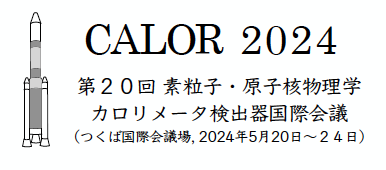Speaker
Description
The CMS experiment at LHC has a 15 year experience with the energy measurement of electrons and photons produced in collisions of high-luminosity high-energy colliders with a homogeneous electromagnetic calorimeter. The PbWO$_4$ crystal calorimeter must operate at high rate in a harsh radiation environment: changes in detector response need to be corrected for and dedicated techniques are used to mitigate the large number of overlapping interactions (pileup). It also measures the arrival time of the particles, with a precision ranging from 150 to 200 ps. This information is exploited in physics searches, such as for long-lived particles. After the upgrade of the electronics foreseen for the Phase 2 of the LHC, the time resolution will reach 30 ps for energies higher than about 50 GeV. With this level of precision, ECAL can help discriminate overlapping collisions of protons coming from the same crossing bunches by exploiting the difference in time of flight due to the different position of the vertex along the beam axis the particle is coming from. This will be particularly important with the average levels of pile-up foreseen for the LHC Phase2, that will reach 150 in Run 4 and 200 in Run 5. The talk will present a summary of the performance of the CMS ECAL during the Run3 and the performance measured with the upgraded electronics at recent beam tests.
